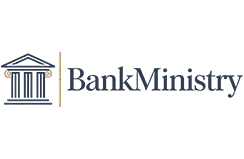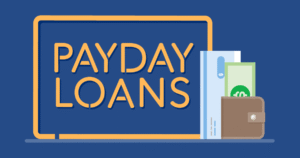In 2025, personal banking services in USA are more dynamic and customer-centric than ever. With the rise of digital banking, innovative account options, and tailored financial solutions, banks are competing to offer convenience, security, and value to individuals. Whether you’re a young professional opening your first checking account, a family planning for a mortgage, or a retiree managing wealth, understanding the landscape of personal banking is crucial. This guide dives deep into what personal banking entails, why it matters, and how to choose the best services from top U.S. banks like U.S. Bank, PNC, Citibank, and CIBC U.S. We’ll explore account types, digital tools, security measures, and practical tips to help you navigate the financial world with confidence.
Why Personal Banking Services Matter
Personal banking services are the foundation of financial management. They provide tools to save, spend, borrow, and invest, enabling you to achieve short-term goals (like budgeting for monthly expenses) and long-term aspirations (such as buying a home or retiring comfortably). In the U.S., banks offer a range of products—checking accounts, savings accounts, credit cards, loans, and wealth management—designed to meet diverse needs. The importance of these services lies in their ability to:
- Streamline Financial Management: Tools like mobile apps and online banking make it easy to track spending, pay bills, and save automatically.
- Enhance Security: Banks employ advanced security measures, such as biometric authentication and fraud alerts, to protect your money.
- Support Financial Goals: From high-yield savings to investment portfolios, banking services help you grow wealth and plan for the future.
- Provide Accessibility: With thousands of branches and ATMs, plus digital platforms, you can access funds anytime, anywhere.
In 2025, the U.S. banking sector is shaped by competition among major players, technological advancements, and a focus on customer experience. However, choosing the right bank can be overwhelming due to the variety of options and features. This article addresses the question, “What are the best personal banking services in the USA?” by analyzing offerings from four leading banks, identifying their strengths, and providing actionable advice.
The “What” and “Why” of Personal Banking Services
What Are Personal Banking Services?
Personal banking services encompass financial products and tools designed for individual consumers. These include:
- Checking Accounts: For daily transactions like paying bills, shopping, or transferring money.
- Savings Accounts: For building emergency funds, saving for goals, or earning interest.
- Credit Cards: For purchases, building credit, and earning rewards like cashback or travel points.
- Loans and Mortgages: For financing homes, cars, or personal expenses.
- Wealth Management: For investing, retirement planning, and managing high-net-worth portfolios.
- Digital Banking: Online and mobile platforms for managing accounts, depositing checks, and making payments.
Each service addresses specific financial needs, from managing daily cash flow to planning for major life events. Banks like U.S. Bank, PNC, Citibank, and CIBC U.S. offer these services with unique features, such as promotional bonuses, digital tools, or cross-border capabilities.
Why Personal Banking Services Are Essential in 2025
The financial landscape in the U.S. is evolving rapidly. Here’s why personal banking services are critical:
- Economic Uncertainty: Inflation, interest rate changes, and economic shifts make it vital to have reliable banking tools to manage finances effectively.
- Digital Transformation: With 80% of Americans using mobile banking (according to a 2024 survey), digital tools are essential for convenience and real-time financial oversight.
- Financial Inclusion: Banks are expanding access through low-fee accounts, multilingual support, and digital platforms, ensuring more people can participate in the financial system.
- Personalized Solutions: From budgeting tools to wealth management, banks tailor services to individual goals, making banking more relevant than ever.
However, not all banking services are equal. Some banks excel in digital innovation, while others focus on in-person support or specialized accounts. Understanding the strengths and limitations of each provider is key to making informed decisions.
Exploring Top Personal Banking Services in the USA
To provide a comprehensive overview, we’ve analyzed four major U.S. banks based on their personal banking offerings: U.S. Bank, PNC, Citibank, and CIBC U.S. Each bank has unique strengths, from robust digital platforms to cross-border solutions. Below, we break down their services, features, and what sets them apart.
U.S. Bank: Comprehensive Services with a Strong Digital Presence
Overview: U.S. Bank, the fifth-largest commercial bank in the U.S., is headquartered in Minneapolis, Minnesota, and operates under U.S. Bancorp, a Fortune 500 company. It serves over half a million clients, including 90% of Fortune 1000 companies, and manages $6.7 trillion in assets under administration.
Key Offerings
- Checking and Savings: The U.S. Bank Smartly® Checking account offers rewards for everyday banking, with features like automated savings and subscription tracking. Savings accounts provide competitive interest rates and easy access.
- Credit Cards: Offers a range of cards with rewards, cashback, and travel benefits, manageable through a secure online platform.
- Loans and Mortgages: Includes home loans, home equity lines, and personal loans, with tools like mortgage calculators for planning.
- Wealth Management: Ranked No. 1 in Investor Satisfaction by J.D. Power (2024), U.S. Bank provides asset-based lending, custody services, and portfolio optimization for high-net-worth clients.
- Digital Banking: The U.S. Bank Mobile App allows users to manage accounts, deposit checks, send money, and view external accounts. Paze® enhances online checkout security, and customizable alerts monitor high-risk transactions.
Strengths
- Digital Innovation: The mobile app’s ability to view external accounts is unique, offering a holistic financial overview.
- Reputation: Recognized as one of the World’s Most Ethical Companies® by Ethisphere and Fortune’s most admired superregional bank.
- Accessibility: Accounts can be opened with a $25 minimum, and 60,000+ surcharge-free ATMs ensure easy access.
Limitations
- Language Accessibility: Some materials are English-only, potentially limiting access for non-English speakers.
- Regional Focus: Stronger presence in the Midwest may affect brand recognition elsewhere.
Recent Updates
- Branches were closed on July 4, 2025, with digital and ATM services available.
- Preparing clients for the “T+1” securities cycle, reducing trade settlement time to one business day.
PNC: Innovative Tools for Everyday Banking
Overview: PNC Bank, based in Pittsburgh, Pennsylvania, operates in 27 states with 2,629 branches and 9,523 ATMs. A subsidiary of PNC Financial Services Group, Inc., it’s a leader in personal and small business banking.
Key Offerings
- Checking and Savings: The Virtual Wallet® combines checking and savings with budgeting tools, calendars, and automated savings. Standard Savings accounts require low minimums ($25-$300) to avoid fees.
- Credit Cards: The PNC Cash Rewards® Visa® offers a $200 bonus for qualifying activities and cashback rewards.
- Loans and Mortgages: Provides mortgages, auto loans, and home equity loans, with tools like the Home Insight Planner.
- Wealth Management: PNC Private Bank℠ and Hawthorn® cater to high-net-worth clients with investment consulting and fiduciary services.
- Digital Banking: The PNC Mobile App supports Zelle®, mobile deposits,alarm, and Low Cash Mode for managing low balances. Paze® ensures secure online checkouts.
Strengths
- Innovative Tools: Virtual Wallet® offers unique budgeting and savings features.
- Accessibility: Extensive branch (2,300+) and ATM (60,000+ surcharge-free) network, plus multilingual support in 240+ languages.
- Promotions: Attractive bonuses, like $200 for new credit card accounts.
Limitations
- Technical Issues: Some users report mobile app login problems or biometric setup issues.
- Fees: Charges for services like Express Funds (2.5% for checks over $100) may deter cost-conscious clients.
Recent Updates
- New Online Banking experience launched July 11, 2025, with enhanced features.
- Mobile branch initiative started July 7, 2025, for on-site services.
Citibank: Global Reach and Digital Innovation
Overview: Citibank, part of Citigroup Inc., is the third-largest U.S. bank, operating in 160+ countries. It’s a leader in credit cards and digital banking, with a focus on high-net-worth clients.
Key Offerings
- Checking and Savings: Offers the Access Account (no overdraft fees), Citi Priority, and Citigold® for premium clients. High-yield savings accounts cater to digital-first customers.
- Credit Cards: Includes the Citi Custom Cash Card, ThankYou, and co-branded cards (e.g., Costco), with digital lending options.
- Loans and Mortgages: Provides personal loans, mortgages, and home equity loans, with digital servicing.
- Wealth Management: Citigold and Citi Private Bank serve high-net-worth clients with global investment options.
- Digital Banking: The Citi Mobile App supports Zelle®, mobile deposits, and real-time alerts. The Tribeca Client Center showcases innovative retail banking.
Strengths
- Global Network: Ideal for clients with international needs, offering foreign currency accounts.
- Digital Leadership: Mobile-first cards and digital lending drive convenience.
- Premium Services: Citigold Private Client offers exclusive benefits for clients with $1M+ in assets.
Limitations
- Corporate Challenges: Recent layoffs and a $400M fine (2023) for risk control issues may raise concerns.
- Accessibility: Limited physical presence outside major cities.
Recent Updates
- Undergoing maintenance in March 2025, affecting credit card access.
- Hosted diversity events like the 2025 Iftar and “Founders Forum” for women entrepreneurs.
CIBC U.S.: Cross-Border Expertise and Digital Excellence
Overview: CIBC U.S., a subsidiary of Canadian Imperial Bank of Commerce, focuses on U.S. clients in major cities, offering cross-border solutions and digital banking.
Key Offerings
- Checking and Savings: CIBC Bank USA Smart Account and Agility accounts (high-yield savings, CDs) support everyday and long-term goals.
- Mortgages and Lending: Offers personalized mortgages, personal loans, and home equity lines.
- Private Banking: High-touch services for high-net-worth clients, with customized lending and trust solutions.
- Cross-Border Banking: CIBC US$ Personal Account allows seamless U.S.-Canada transactions without currency conversion.
- Digital Banking: CIBC NetBanking and mobile app offer Zelle®, mobile deposits, and biometric sign-on, backed by the Digital Banking Guarantee.
Strengths
- Cross-Border Solutions: Ideal for clients with U.S.-Canada financial needs.
- Digital Excellence: Mobile app earns top ratings from J.D. Power and Forrester Research.
- Security: Trusteer Rapport software and fraud alerts enhance safety.
Limitations
- Limited Branch Network: Fewer branches compared to competitors, relying on digital and ATM access.
- Fees: Non-CIBC ATM use and third-party services may incur costs.
Recent Updates
- Promotional interest on Business Investment Growth Account (July 1–October 31, 2025).
- Redesigned mobile app with enhanced features.
How to Choose the Right Personal Banking Services
Choosing the right personal banking services in the USA depends on your financial needs, lifestyle, and preferences. Below are practical steps to guide your decision.
Assess Your Financial Goals
- Short-Term Needs: For daily banking, prioritize low-fee checking accounts (e.g., PNC’s Virtual Wallet®) or no-overdraft accounts (e.g., Citibank’s Access Account).
- Long-Term Savings: Look for high-yield savings or CDs (e.g., CIBC Agility accounts) to maximize interest.
- Major Purchases: For mortgages or loans, compare rates and tools like U.S. Bank’s calculators or PNC’s Home Insight Planner.
- Wealth Building: High-net-worth clients may prefer Citibank’s Citigold or CIBC’s Private Banking for tailored investment services.
Evaluate Digital Banking Features
- Mobile App Functionality: Ensure the app supports your needs (e.g., Zelle® for PNC/Citibank/CIBC, external account viewing for U.S. Bank).
- Security: Look for biometric authentication, fraud alerts, and guarantees (e.g., CIBC’s Digital Banking Guarantee, PNC’s Paze®).
- Convenience: Check for mobile deposits, bill pay, and budgeting tools (e.g., PNC’s Virtual Wallet® calendar).
Consider Accessibility and Fees
- Branch and ATM Access: PNC and U.S. Bank offer extensive networks (60,000+ ATMs), while CIBC relies on digital channels.
- Fee Structure: Avoid accounts with high maintenance fees or transaction costs (e.g., PNC’s Express Funds, CIBC’s non-CIBC ATM fees).
- Multilingual Support: PNC offers 240+ languages, while CIBC supports English/French, but some content may be English-only.
Compare Promotions and Rewards
- Bonuses: PNC’s $200 credit card bonus and CIBC’s BIGA promotional interest are attractive incentives.
- Rewards Programs: Citibank’s ThankYou points and U.S. Bank’s cashback cards offer ongoing benefits.
Check for Specialized Services
- Cross-Border Needs: CIBC U.S. excels for U.S.-Canada transactions.
- Wealth Management: Citibank and U.S. Bank cater to high-net-worth clients with premium services.
- Specialized Accounts: CIBC’s Traditions Club (50+) or HSAs address niche needs.
Practical Applications: Making Personal Banking Work for You
To make the most of personal banking services, consider these practical applications tailored to different life stages.
Young Professionals (Ages 20–30)
- Goal: Build financial independence and credit.
- Recommendations:
- Open a low-fee checking account (e.g., Citibank Access Account) to avoid overdraft fees.
- Use a rewards credit card (e.g., PNC Cash Rewards® Visa®) to earn cashback while building credit.
- Set up automated savings transfers via U.S. Bank’s Smartly® Checking or PNC’s Virtual Wallet® to save for emergencies.
- Example: Sarah, a 25-year-old graphic designer, uses PNC’s Virtual Wallet® to track her freelance income and expenses, setting a $100 monthly savings goal for a future car purchase.
Families (Ages 30–50)
- Goal: Plan for major purchases and family expenses.
- Recommendations:
- Use mortgage tools from U.S. Bank or PNC to plan home purchases.
- Leverage budgeting tools (e.g., PNC’s calendar, Citibank’s spending tracker) to manage household expenses.
- Consider HSAs from CIBC for medical expenses.
- Example: The Johnson family uses Citibank’s Home Insight Planner to secure a mortgage, while their CIBC HSA covers unexpected medical costs.
Retirees (Ages 50+)
- Goal: Preserve wealth and plan for retirement.
- Recommendations:
- Explore wealth management with Citibank’s Citigold or U.S. Bank’s portfolio services.
- Use CIBC’s Traditions Club for age-specific benefits.
- Invest in high-yield CDs (CIBC Agility) for low-risk returns.
- Example: John, a 60-year-old retiree, uses Citigold Private Client to manage his $1.5M portfolio, with a dedicated advisor ensuring diversified investments.
Cross-Border Clients
- Goal: Manage U.S.-Canada finances seamlessly.
- Recommendations:
- Use CIBC’s US$ Personal Account for no-conversion transactions.
- Leverage CIBC NetBanking for real-time cross-border transfers.
- Example: Maria, a Canadian living in Chicago, uses CIBC’s Smart Account to pay U.S. bills without currency conversion fees.
Broader Context: Factors Influencing Personal Banking
Economic and Regulatory Environment
- Interest Rates: In 2025, fluctuating interest rates affect savings and loan rates. High-yield accounts (e.g., CIBC Agility) are ideal during high-rate periods.
- Regulations: The “T+1” securities cycle (U.S. Bank) speeds up trade settlements, impacting investment accounts.
- FDIC Insurance: All four banks are FDIC-insured, protecting deposits up to $250,000 per depositor.
Lifestyle and Financial Habits
- Budgeting: Tools like PNC’s Virtual Wallet® help align banking with lifestyle needs, such as tracking irregular income for freelancers.
- Spending Patterns: Credit card rewards (e.g., Citibank’s ThankYou points) suit frequent travelers or shoppers.
- Retirement Planning: Wealth management services align with long-term lifestyle goals like travel or philanthropy.
Technological Trends
- AI and Automation: Banks use AI for fraud detection and personalized recommendations (e.g., Citibank’s Custom Cash Card adjusts rewards based on spending).
- Mobile Banking: Over 80% of Americans use mobile apps, driving banks to enhance features like Zelle® and biometric sign-on.
- Fintech Integration: Partnerships with fintechs (e.g., PNC’s Zelle®, U.S. Bank’s Paze®) improve transaction speed and security.
Safety Precautions and Common Mistakes to Avoid
Safety Precautions
- Protect Your Data: Use strong passwords, two-step verification, and Trusteer Rapport (CIBC) to secure online banking.
- Monitor Accounts: Set up alerts for suspicious activities (e.g., U.S. Bank’s high-risk transaction alerts).
- Consult Professionals: For complex decisions like mortgages or investments, consult a qualified financial advisor to ensure suitability.
- Avoid Phishing Scams: Be cautious of unsolicited emails or calls; verify communications through official bank channels.
Common Mistakes to Avoid
- Ignoring Fees: Overlooking maintenance or transaction fees (e.g., PNC’s Express Funds) can erode savings. Review fee schedules carefully.
- Neglecting Security: Failing to enable biometric authentication or fraud alerts increases risk.
- Over-Reliance on Digital: While digital banking is convenient, ensure you understand branch-based services for complex needs.
- Choosing the Wrong Account: Avoid accounts misaligned with your goals (e.g., high-fee accounts for low-balance users).
Detailed Comparison of the Four Banks
To help you decide, here’s a detailed comparison of U.S. Bank, PNC, Citibank, and CIBC U.S. based on key factors:
Account Options
- U.S. Bank: Smartly® Checking, high-yield savings, diverse credit cards, and wealth management for all levels.
- PNC: Virtual Wallet®, Standard Savings, cashback credit cards, and premium wealth services.
- Citibank: Access Account, high-yield savings, mobile-first credit cards, and Citigold for high-net-worth clients.
- CIBC U.S.: Smart Account, Agility accounts, cross-border accounts, and private banking.
Digital Banking
- U.S. Bank: Mobile app with external account viewing, Paze®, and robust alerts.
- PNC: Virtual Wallet® with budgeting tools, Zelle®, and Low Cash Mode.
- Citibank: Mobile-first cards, Zelle®, and digital lending capabilities.
- CIBC U.S.: CIBC NetBanking, Zelle®, biometric sign-on, and Trusteer Rapport.
Fees and Bonuses
- U.S. Bank: Low minimums ($25), no major bonus details provided.
- PNC: $200 credit card bonus, fees for Express Funds (2.5% for checks over $100).
- Citibank: Credit card bonuses (e.g., Costco card), low-fee Access Account.
- CIBC U.S.: BIGA promotional interest, potential non-CIBC ATM fees.
Accessibility
- U.S. Bank: 60,000+ ATMs, Midwest focus, some English-only materials.
- PNC: 2,300 branches, 60,000+ ATMs, 240+ languages.
- Citibank: Global reach, limited U.S. branches, English focus.
- CIBC U.S.: Limited branches, 60,000+ ATMs, English/French support.
Specialized Services
- U.S. Bank: Wealth management (J.D. Power No. 1), mortgage tools.
- PNC: Virtual Wallet®, small business focus.
- Citibank: Citigold Private Client, global banking.
- CIBC U.S.: Cross-border accounts, Traditions Club, HSAs.
Case Studies: Real-Life Applications
Case Study 1: Young Professional Starting Out
Scenario: Alex, a 28-year-old software engineer in Chicago, wants a low-maintenance account and a rewards credit card.
- Solution: Alex chooses PNC’s Virtual Wallet® for its budgeting tools and $200 bonus Cash Rewards® Visa®. He uses Zelle® to split bills with roommates and sets up automated savings for a future vacation.
- Outcome: Alex saves $1,000 in six months and earns $50 cashback, avoiding fees with a $500 monthly direct deposit.
Case Study 2: Family Planning a Home Purchase
Scenario: The Lee family in Atlanta needs a mortgage and a family budgeting tool.
- Solution: They select U.S. Bank’s Smartly® Checking and mortgage services, using the Home Insight Planner to secure a competitive rate. The mobile app helps track family expenses.
- Outcome: They secure a $300,000 mortgage and save $200 monthly by optimizing their budget.
Case Study 3: Retiree Managing Wealth
Scenario: Linda, a 65-year-old retiree in New York, wants to grow her $2M portfolio.
- Solution: She opts for Citibank’s Citigold Private Client, with a dedicated advisor and global investment options.
- Outcome: Linda diversifies her portfolio, achieving 5% annual returns, and enjoys exclusive travel benefits.
Case Study 4: Cross-Border Entrepreneur
Scenario: Mark, a Canadian entrepreneur in Miami, needs seamless U.S.-Canada banking.
- Solution: He uses CIBC’s US$ Personal Account for no-conversion transactions and CIBC NetBanking for real-time transfers.
- Outcome: Mark saves $500 annually on conversion fees and manages both businesses efficiently.
Future Trends in Personal Banking Services
AI and Personalization
Banks are leveraging AI to offer personalized recommendations, such as tailored savings plans or fraud alerts. Citibank’s Custom Cash Card uses AI to adjust rewards based on spending patterns.
Sustainable Banking
Banks like Citibank are focusing on sustainability, supporting eco-friendly initiatives and offering green investment options.
Enhanced Digital Security
With cyber threats rising, banks are investing in biometric authentication, encryption, and tools like CIBC’s Trusteer Rapport.
Expanded Cross-Border Services
As global mobility increases, banks like CIBC U.S. are expanding cross-border solutions, benefiting clients with international financial needs.
Read more – business savings account options
Frequently Asked Questions
What are the best personal banking services in the USA for beginners?
For beginners, low-fee accounts like Citibank’s Access Account or PNC’s Virtual Wallet® are ideal, offering budgeting tools and no overdraft fees. U.S. Bank’s Smartly® Checking is also great for automated savings.
How do I choose between online and traditional banking?
Online banking (e.g., CIBC Agility accounts) offers convenience and high-yield savings, while traditional banking (e.g., PNC’s branches) suits those needing in-person support. Hybrid options like U.S. Bank balance both.
Are there any fees I should watch out for?
Check for monthly maintenance fees, ATM fees (e.g., CIBC non-CIBC ATMs), and transaction fees (e.g., PNC’s Express Funds). Review account terms to avoid surprises.
Can I use these banks for international transactions?
CIBC U.S. excels in U.S.-Canada transactions, while Citibank’s global network supports 160+ countries. U.S. Bank and PNC also offer international services but are less specialized.
Disclaimer: This content is for informational purposes only. Always consult a qualified financial professional for financial advice and decisions.



